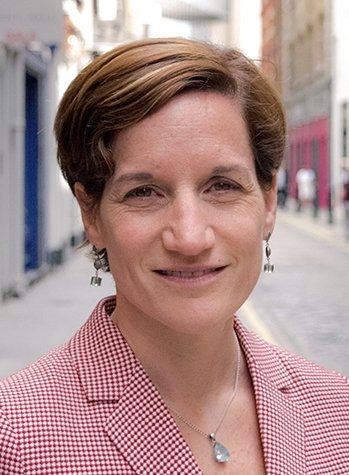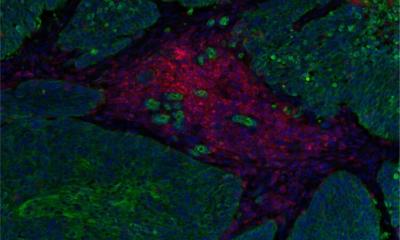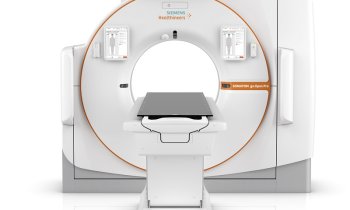Image source: Adobe Stock/sewcream
Article • Awareness, screening, therapies
Why Europe is in need of a new lung cancer strategy
Lung cancer is the main cause of cancer-related deaths in Europe. Yet, diagnosis, treatment, and access to care varies from country to country, often even within regions in the same country. During a webinar organised by The Health Policy Partnership (HPP), health experts and clinicians highlighted the need for urgent changes to lung cancer services across Europe to create a more cohesive and equal approach to care.
Report: Mark Nicholls

© HPP
Emblematic of the situation, the “Beating Cancer Plan” – a treatise issued by the European Commission in 2021 – does not have a section specifically focused on lung cancer.1 To help increase recognition of lung cancer as a strategic health priority and raise awareness of the need for investment, HPP presented key messages from its own take on the issue, a think piece entitled “Lung cancer in Europe: The way forward”.2
Not only does lung cancer represent a fifth of all cancer deaths, explained HPP managing director Dr Suzanne Wait – it is also one of the most expensive cancers in terms of direct and indirect costs, accounting for a quarter of productivity losses due to premature mortality. ‘Despite significant advances in diagnostics, survival or prognosis for lung cancer continues to be very low compared to other cancers,’ she said. However, detection of the cancer at an early stage has a major impact on prognosis: ‘Early detection and early diagnosis mean that 68-92% will survive for five years, whereas if detected at Stage 4, that figure is only 10%.’ 3
An urgent public health issue
In recent years, low-dose computed tomography (LDCT) has emerged as an effective screening tool, proven in clinical trials and able to shift diagnosis to an earlier stage, ‘leading to significant reductions in lung cancer mortality,’ Dr Wait said. However, she maintained that despite treatment and screening advances, lung cancer remains an urgent public health issue. It has been established that smoking is the main risk factor for lung cancer, with even former smokers exhibiting an elevated risk long after they quit smoking, the expert stressed. This is especially worrisome for Europe, which has the highest prevalence of smoking globally with 29% of people 15 or older consuming tobacco products.4 However, Dr Wait cautioned that 10-25% of lung cancer cases are diagnosed in people who have never smoked, meaning air pollution or other factors could be involved. Additionally, she noted that Covid-19 has reduced access to diagnosis and care, which may further increase lung cancer deaths.
“Making a dent” in lung cancer prevalence and mortality
Dr Wait said: ‘The time is now to act on lung cancer. Europe’s Beating Cancer Plan proposes a comprehensive approach to tackling cancer generally, spanning the entire spectrum from prevention to diagnosis and treatment and doing all to optimise quality of life of people who have survived cancer. But there is no specific mention of lung cancer, which several professional societies and commentators have pointed to as a real gap in the publication.’

© HPP
The HPP think piece endeavours to take a different approach towards making a “dent” in the prevalence and mortality of lung cancer. Eleanor Wheeler, HPP’s Associate Director of Research and Policy, said: ‘It is clear that we need to prioritise tackling lung cancer – and the timing of this think piece aligns with the European Commission’s call for evidence to update current cancer screening recommendations.’ She detailed the key messages of the document, which identifies four strategic priorities:
- improving awareness of lung cancer and reduction of stigma linked to smoking, reversing perceptions of lung cancer as a self-inflicted condition;
- accelerated implementation of LDCT screening to complement smoking cessation efforts;
- a targeted approach to reduce inequalities in access and outcomes; and
- improving availability of high-quality multi-disciplinary care for lung cancer, reducing disparities in access both within and between countries.
We would like to see smoking recognised as an addiction rather than behavioural choice. Stigma leads to lack of empathy for people diagnosed with lung cancer and can also act as barrier to people seeking medical treatment
Eleanor Wheeler
‘Improving public awareness and political prioritisation of lung cancer by fostering a much better understanding of lung cancer could reduce delays in diagnosis – for example, by helping people to understand what symptoms could indicate lung cancer,’ said Ms Wheeler.
‘We would like to see smoking recognised as an addiction rather than behavioural choice. Stigma leads to lack of empathy for people diagnosed with lung cancer and can also act as barrier to people seeking medical treatment.’ She also underlined the need for a more gender-specific approach to draw attention to the fact that lung cancer mortality rates worldwide are increasing in women.5 ‘We hope that by addressing the key strategic priorities laid out in the think piece, we could see European governments move towards a far more comprehensive approach to tackling cancer.’
On the horizon: new threats, new hope
In a Q&A panel discussion following the presentation, Manuel Pizarro, Member of the European Parliament (MEP) for Portugal, and co-chair of the MEP Lung Health Group, made an appeal for increased awareness on all cancer, particularly lung cancer, at European and regional level: ‘We need a more co-ordinated and comprehensive approach at European level. We must not be happy with the inequalities in Europe when we speak about cancer prevention, diagnosis, or treatment,’ he said. He expressed concern at new tobacco products and electronic cigarettes, extending tobacco addictions to new generations. ‘We must fight that,’ he stressed. ‘Lung cancer is a preventable disease, and we must act now.’
In the same discussion, Professor Silvia Novello from the Department of Oncology at the University of Turin, Italy, and President of non-profit organisation Women Against Lung Cancer in Europe, underlined the need for equity of therapeutic approaches across Europe in terms of access to tests, drugs and clinical trials.
Professor Jacek Jassem, Head of the Department of Oncology and Radiotherapy at the Medical University of Gdansk, Poland, pointed out the underlying paradox of lung cancer: ‘Despite it being a preventable, detectable and treatable disease, lung cancer remains the leading cause of cancer death, so we have to change this situation. We have to prioritise potential interventions; primary prevention and screening are two priorities, while progress in surgery, radiotherapy, advanced disease-targeted therapy and immunotherapy are major developments. If we combine these approaches, we will probably make a difference.’
Ebba Hallersjö Hult, Head of Swedish initiative Vision Zero Cancer, said there is a need for a holistic approach working across society. She emphasised the need for screening programmes and services for non-smokers with lung cancer. Cornel Radu-Loghin, Secretary-General of the European Network for Smoking and Tobacco Prevention, concluded the session with an outlook, saying that while lung cancer has been a problem for many years, there remains much work still to be done to tackle it.
Profiles:
Dr Suzanne Wait is a Managing Director and co-founder of The Health Policy Partnership (HPP), a health policy research consultancy. The importance of inter-sectoral and multidisciplinary collaboration to drive policy change is a focal thread of her work, which includes chronic diseases, particularly cancer, as well as digital health and health system sustainability. Prior to founding HPP, she held various positions at University College London, Cambridge University, and the University of Strasbourg.
Eleanor Wheeler is Associate Director of Research and Policy at HPP, where she leads the programme of work on lung cancer screening. She has wide-ranging insight into the health charity sector, having worked in a combination of roles. She spent seven years at Cancer Research UK, establishing a programme of public and patient involvement across the Research, Innovation and Strategy directorates.
References:
1 European Commission: A cancer plan for Europe; https://ec.europa.eu/info/strategy/priorities-2019-2024/promoting-our-european-way-life/european-health-union/cancer-plan-europe_en
2 Health Policy Partnership: Lung cancer in Europe: A way forward; https://www.healthpolicypartnership.com/project/lung-cancer-in-europe/
3 GO2 Foundation for Lung Cancer: Screening Facts & Figures; https://go2foundation.org/risk-early-detection/screening-facts-figures/
4 WHO: European tobacco use: Trends report 2019; https://www.euro.who.int/en/health-topics/disease-prevention/tobacco/publications/2019/european-tobacco-use-trends-report-2019-2019
5 e.g.: German Centre for Cancer Registry Data: Lung cancer; https://www.krebsdaten.de/Krebs/EN/Content/Cancer_sites/Lung_cancer/lung_cancer_node.html
21.04.2022











